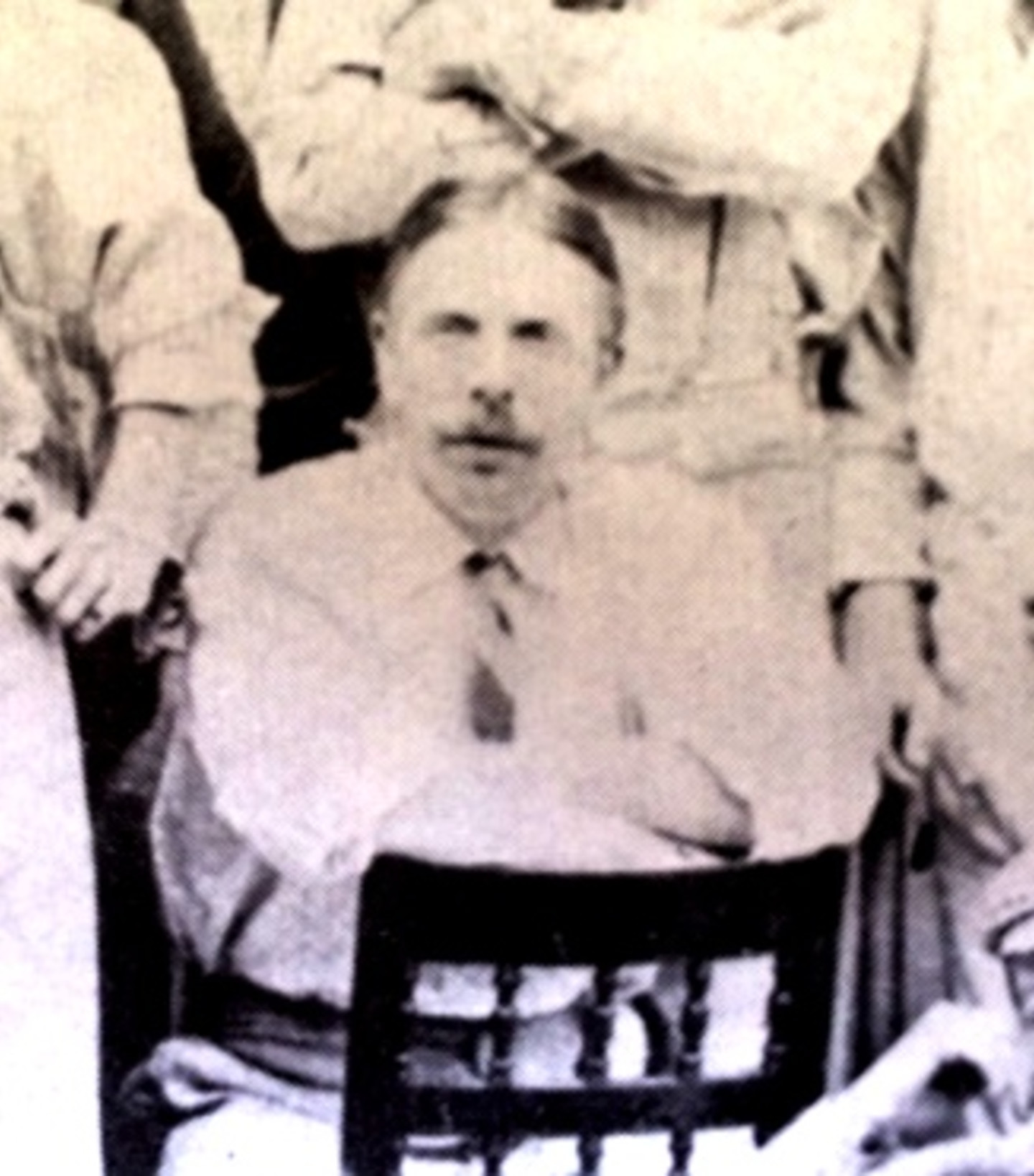An all-round athlete, John Selby was a professional sprinter as well as a professional cricketer. He ran under the pseudonym of ‘Bendigo’s Novice’, his patron being the famous prizefighter of that name, who was also a frequenter of the Trent Bridge ground. Selby’s favourite distance was 120 yards and he won a number of races held at Trent Bridge, in addition to being twice placed in the Sheffield Handicap.
His place in cricket's history was assured when, on the 1876-77 tour of Australia he became the first England batsman to be dismissed in Test cricket!
Selby also toured Australia in 1881–82, playing a total of six Test matches over the two tours. His best score on either trip was 82 but he really made his mark on the running track, where he had several victories against local athletes.
Born in Nottingham on 1 July 1849 - his name was registered as John Burrows - at 17 he was playing for Nottingham Exchange CC and the following year with Trinity United CC. For three successive summers he was given a trial in the Nottinghamshire Colts XXII, making the highest score for this side on his final appearance in 1870.
The Nottinghamshire Committee acknowledge this success by selecting him for the Nottinghamshire team to meet Yorkshire at Trent Bridge in June of that year, this being his First-Class debut. Selection for XVI Colts of England v the United England Eleven (UNEE) at Dewsbury, also in 1870, led to his inclusion in the latter XI for several matches, though in 1871 he switched his allegiance to the All England Eleven (AEE), in whose ranks he regularly appeared until its demise.
After two moderate seasons in Nottinghamshire XI, he struck much improved form in 1872, his average rising from 8.89 in 1871 to 42.28, though this is, in some part, due to an innings of 128no v Gloucestershire at Trent Bridge, during which he only just missed becoming the first Nottinghamshire player to record a century in county cricket at Trent Bridge – in the same innings his teammate and the 'keeper Frederick Wild gained that distinction; Selby was, however, presented with £17 for his score.
In 1873, he completely fell away and only his brilliant fielding kept him in the XI; so poor was his form that he was entirely absent from the Nottinghamshire side in 1874.
He regained his place the following summer and played regularly through 1875-77 but it cannot be said that his batting alone warranted his continued selection, since in the 63 innings he played for Nottinghamshire over those years, he only three times reached 50, his most notable feat being the partnership of 105 with Arthur Cursham against Middlesex at Trent Bridge in 1877. The summer of 1878 proved a complete contrast, Selby began with 66 against the Australians, the next best score in the match being 28, and the Australians, on their first appearance in England, were all out for 63 and 76. Selby hit 107 in 3 hours in 45 minutes for Nottinghamshire v Yorkshire at Sheffield and 96 v Middlesex at Trent Bridge, adding with Arthur Shrewsbury 115 for the 3rd wicket.
Though Selby retained his place in Nottinghamshire side until 1887, he never repeated the form that he showed in 1878. His last match for the County was at Lord’s v MCC on 23-25 June 1887 – the identical days of his debut 18 years before. In 1886 he and another ex-Notts Player, Francis Moore, stood as umpires in a match between the Gentlemen of Nottingham and the visiting team of Parsee cricketers from India, the first cricket side from that country to visit England.
Residing in Nottingham all his life (save for a brief period at Burton Joyce), Selby was at one time landlord of the Earl of Lincoln Arms in Woodborough Road, Nottingham.
After retiring from first-class matches he was unsuccessful in various financial enterprises and in 1893 he faced a criminal charge. Happily he was acquitted, but soon afterwards he suffered a paralytic stroke and was removed to Nottingham General Hospital, where he died on 11 March 1894.
His father was William Selby, who played with the Nottingham Old Club; John Selby married a daughter of the former Nottinghamshire wicket-keeper, John Hogg.
April 2020
Nottinghamshire First-Class Number: 127
